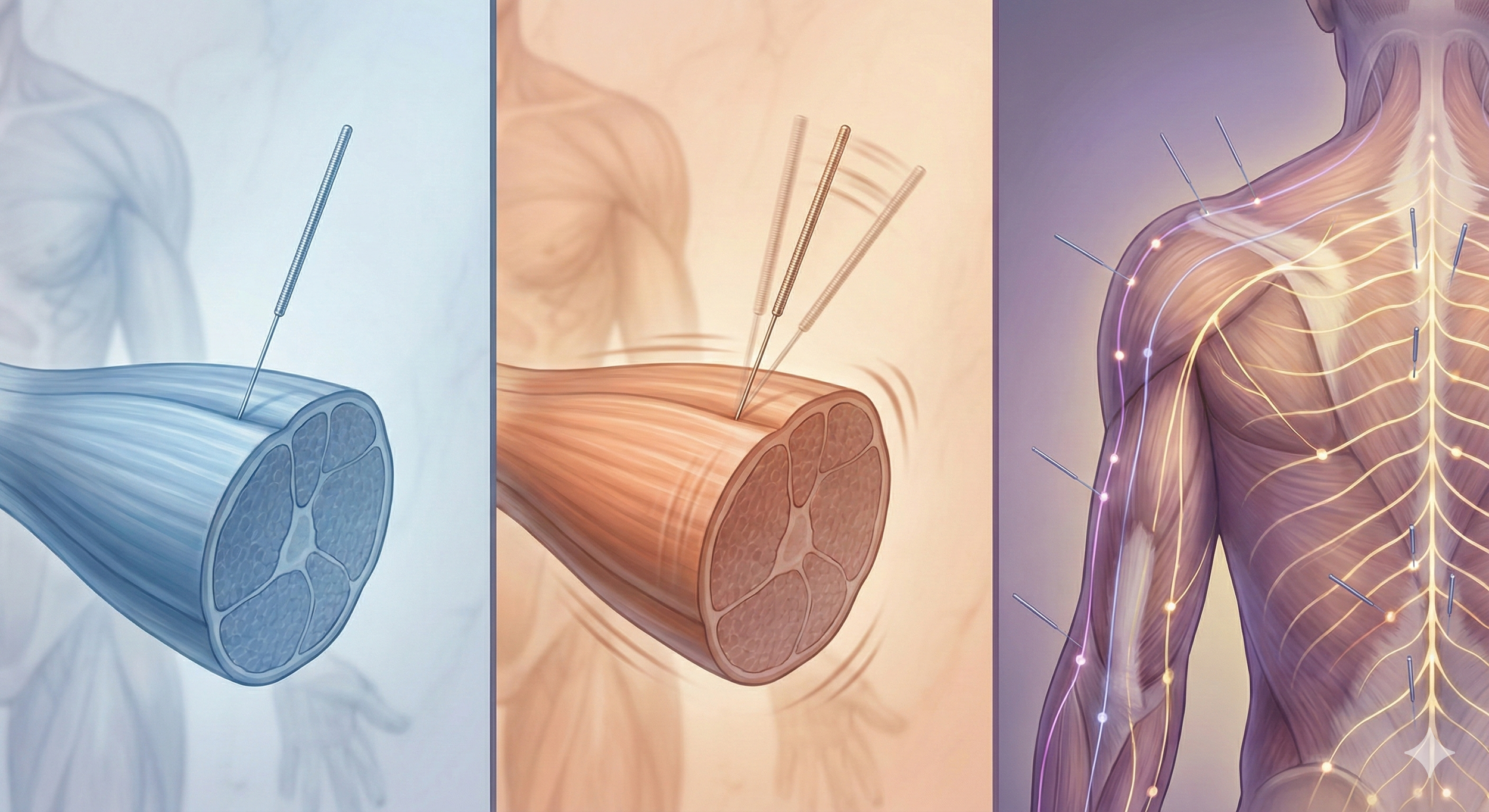Acupuncture Potentially Reduces Stroke Risk in Rheumatoid Arthritis Patients
Stroke symptoms
A recent 2024 study highlights acupuncture’s potential benefits in improving cardiovascular health and reducing stroke risk in people with rheumatoid arthritis (RA).
Key Points
Rheumatoid Arthritis and Cardiovascular Risk: Rheumatoid arthritis (RA) extends its impact beyond joints, significantly increasing the risk of cardiovascular diseases due to systemic inflammation and lifestyle changes caused by joint pain.
Acupuncture's Comprehensive Benefits: Acupuncture offers a dual benefit for RA patients by potentially reducing both the symptomatic pain and the elevated risk of cardiovascular diseases, including stroke, through its regulatory effects on the nervous system and anti-inflammatory properties.
Observational Study Insights: A recent study using data from over 23,000 RA patients in Taiwan's Registry for Catastrophic Illness Patients Database suggests a 43% reduced risk of ischemic stroke in RA patients who underwent acupuncture treatments.
Study Strengths and Future Research Needs: While the study's significant sample size and observational nature add to its credibility, limitations such as unspecified acupuncture protocols and variations in RA severity highlight the need for more detailed research.
Implications for RA Management: The findings encourage the integration of acupuncture into holistic RA treatment strategies, especially for managing cardiovascular risks, offering a new avenue for improving patient outcomes.
Consideration for Patients and Healthcare Providers: This study supports acupuncture as a valuable adjunct therapy for RA, potentially aiding in comprehensive disease management and cardiovascular risk reduction, warranting further discussion and research in clinical settings.
How Can Acupuncture Reduce Stroke Risk in Rheumatoid Arthritis Patients?
Rheumatoid arthritis (RA) is a prevalent autoimmune disease marked by chronic inflammation, leading to joint pain and systemic issues, including an elevated risk for cardiovascular diseases. Given the significance of these complications, the search for effective treatments beyond conventional medicine has intensified. A recent observational study suggests acupuncture may play a crucial role in not only managing RA but also in mitigating associated cardiovascular risks.
Understanding Rheumatoid Arthritis and Its Cardiovascular Implications
Rheumatoid arthritis significantly impacts the body beyond the joints. The systemic inflammation characteristic of RA is a key player in escalating the risk of cardiovascular diseases, including strokes. This is compounded by lifestyle changes necessitated by RA, such as decreased physical activity due to joint discomfort, further exacerbating cardiovascular disease risk.
Acupuncture's Dual Role in Managing RA and Reducing Cardiovascular Risks
Acupuncture's holistic approach to health, focusing on nerve regulation and systemic balance, offers pain relief and inflammation reduction for RA patients. By inhibiting pro-inflammatory markers like TNF-alpha and fostering anti-inflammatory processes, acupuncture not only addresses RA's symptomatic pain but also potentially lowers the risk for cardiovascular diseases, including strokes. Its ability to lower blood pressure, a known cardiovascular risk factor, underscores acupuncture's potential as a comprehensive therapeutic strategy for RA patients.
Insights from the Recent Study
Effect of acupuncture on ischaemic stroke in patients with rheumatoid arthritis: a nationwide propensity score-matched study
The study in question, conducted using data from Taiwan's Registry for Catastrophic Illness Patients Database, highlights acupuncture's promise in decreasing ischemic stroke risk among RA patients. Observing over 23,000 individuals, researchers found that those receiving acupuncture treatments showed a 43% reduced risk of experiencing an ischemic stroke compared to those who did not receive acupuncture.
Study Highlights and Implications
Rheumatoid Arthritis and Cardiovascular Risk: The study reaffirms the link between RA and heightened cardiovascular disease risk, emphasizing the importance of inflammation management.
Acupuncture's Efficacy: Through mechanisms potentially related to inflammation and cardiovascular function modulation, acupuncture presents a promising adjunct therapy for RA patients, aiming to reduce not just pain but also stroke risk.
Study Strengths and Considerations: While the study's large sample size and methodological rigor strengthen its findings, limitations such as the lack of detail on acupuncture protocols and RA severity underscore the need for more targeted research.
A Glimpse into the Future of Rheumatoid Arthritis Treatments
This pioneering study paves the way for a broader understanding and acceptance of acupuncture within RA management paradigms, especially concerning cardiovascular health. While further research is needed to elucidate the specific mechanisms and optimize treatment protocols, the evidence tilts favorably towards integrating acupuncture into holistic RA treatment plans.
For RA Patients and Healthcare Providers
The intersection of rheumatoid arthritis management and cardiovascular health preservation is complex and multifaceted. This study offers a glimpse into how acupuncture can serve as a bridge between these two critical aspects of RA care. Patients seeking holistic approaches and healthcare providers looking for adjunctive therapies might find acupuncture a valuable addition to their treatment arsenal, potentially improving quality of life and reducing critical risks associated with RA.
In conclusion, while acupuncture's journey from an alternative treatment to a mainstream therapeutic option for RA and its associated cardiovascular risks is still unfolding, the current evidence provides a hopeful perspective. Both patients and practitioners are encouraged to consider acupuncture's full potential in the comprehensive management of rheumatoid arthritis, keeping an open dialogue about integrating this ancient practice into modern medical care.
Over to you
If you liked this article, please share with friends and family who may want to learn more about acupuncture for rheumatoid arthritis and cardiovascular health.
Sources:
Huang C, Huang M, Liao H, et al. Effect of acupuncture on ischaemic stroke in patients with rheumatoid arthritis: a nationwide propensity score-matched study
BMJ Open 2024;14:e075218. doi: 10.1136/bmjopen-2023-075218 https://pubmed.ncbi.nlm.nih.gov/38351113/
Disclaimer: This web site is intended for educational and informational purposes only. Reading this website does not constitute providing medical advice or any professional services. This information should not be used for diagnosing or treating any health issue or disease. Those seeking medical advice should consult with a licensed physician. Seek the advice of a medical doctor or other qualified health professional for any medical condition. If you think you have a medical emergency, call 911 or go to the emergency room. No acupuncturist-patient relationship is created by reading this website or using the information. Morningside Acupuncture PLLC and its employees and contributors do not make any express or implied representations with respect to the information on this site or its use.




